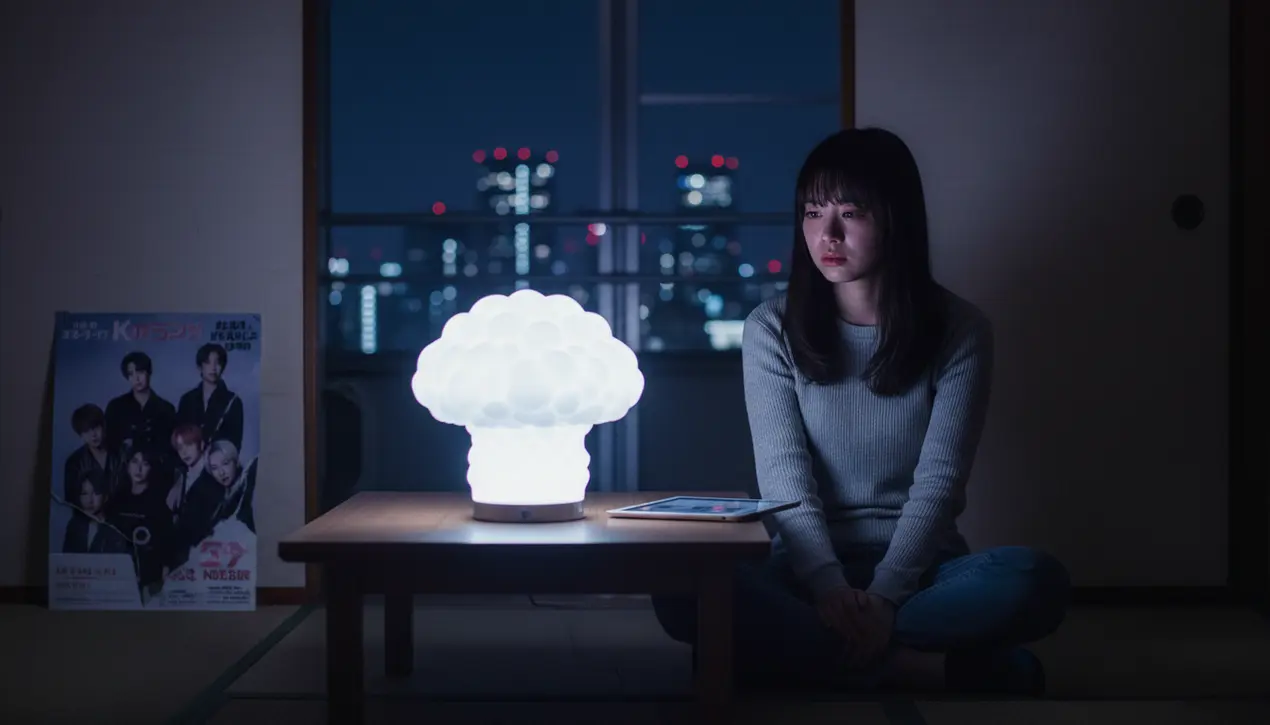
Entertainmentcelebrities
Petition in Japan Over K-pop Star's Atomic Bomb Post
JE
Jessica Stone
10 hours ago7 min read
The K-pop universe is currently rocked by a controversy so intense it makes typical fan wars look like a friendly Twitter spat. Over 103,000 signatures have flooded an online petition on Change.org, demanding that SM Entertainment's powerhouse girl group Aespa be outright banned from participating in a major New Year's Eve music event in Japan. The epicenter of this diplomatic firestorm? A since-deleted social media post from this past May by member Giselle, which featured what she innocently captioned as a 'cute light' she had purchased.The problem, as identified by furious petitioners and Japanese netizens, is that the item in question wasn't just any novelty lamp; it was an 'atomic bomb model light,' a product whose very design evokes the horrific nuclear detonations that devastated Hiroshima and Nagasaki in 1945, events that remain an profoundly sensitive and painful part of Japan's national memory. This isn't just a simple case of a cultural misunderstanding or a poorly thought-out Instagram story—it's a collision of pop culture and historical trauma on a global stage, highlighting the immense pressure and scrutiny faced by idols where every post is eternally archived and can be weaponized.The petition explicitly calls out the post as an insult to the victims of the atomic bombings, framing the issue not as a mere personal misstep by a young artist but as an act severe enough to warrant the group's exclusion from a significant televised event, Kohaku Uta Gassen, which is a cultural institution in Japan. For Aespa, a group whose entire concept is built around a futuristic 'æ' universe and battling digital threats, this real-world backlash presents a unique crisis, testing the limits of their carefully crafted meta-narrative.The incident echoes past tensions in the Hallyu wave, where Korean artists' activities or statements have sometimes ignited nationalist sentiments in Japan, recalling the years-long ban on Korean media content. It raises critical questions about the responsibilities of multinational entertainment companies like SM Entertainment in providing comprehensive cultural sensitivity training for their artists, who are de facto cultural ambassadors.While Giselle, who is of mixed Japanese and Korean heritage, likely had zero malicious intent, the episode underscores how historical wounds between the two nations can be reopened in the unlikeliest of places, from a TikTok feed to a product listing on an e-commerce site. The fallout is being watched closely, not just by MYs (Aespa's fandom) and anti-fans, but by industry execs who understand that in the hyper-competitive world of K-pop, access to the lucrative Japanese market can make or break a group's career. Will SM issue a more formal apology beyond the post's deletion? How will this impact Aespa's brand partnerships and future Japanese promotions? This saga is more than a scandal; it's a masterclass in how the personal social media of a global star is never truly personal, and how the shadows of history are always just one click away from flooding the bright, hyper-produced world of K-pop with a very real and sobering light.
#K-pop
#Aespa
#atomic bomb
#controversy
#Japan
#petition
#featured
#social media
#diplomatic incident
Stay Informed. Act Smarter.
Get weekly highlights, major headlines, and expert insights — then put your knowledge to work in our live prediction markets.
Related News
Comments
Loading comments...
© 2025 Outpoll Service LTD. All rights reserved.